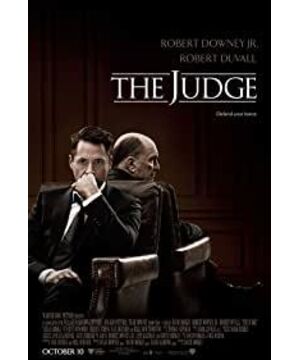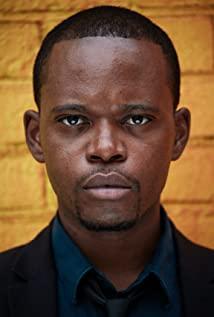I suspect that the director has not figured out what the main point of the film is, or is unable to figure it out. If the return of the prodigal son is the main theme of the film (it seems like the director's only intention throughout), then the depiction of the feelings between father and son is a must. In his role, the father is a legal practitioner with a lofty sense of mission, and he has a strong sense of hometown and traditional family values. These points are exactly the opposite of his second son and even lead to incompatibility between the two. If the film is to cultivate the audience's recognition of the change of father and son's feelings, in fact, the sharp contradiction between father and son's values must be resolved.
In this film, in terms of the understanding of the mission and value of the law, since the father is a judge for many years and the son is a cynical gold defense lawyer, in fact, different concepts are bound to appear in the understanding of the law. However, there are only a handful of dialogues on the "view of law" between father and son in the film, and they did not enter the category of different logical discussions at all. Simplifying the concept of law and making it face-to-face not only makes the father's image appear more or less false, but also directly reduces the level of the whole film. The value discussion that is bound to appear between the father who sanctifies the law and the son who fully practicalizes the value of the law has no trace until the end. Based on the film's strong legal professional background, the many years of anti-crime and the plot of the main line of criminal cases, the price of not conducting such a discussion is too great.
The second is the hometown complex. It is also with the help of hometown funerals to change lives. A few years ago, "Elizabeth Town"'s meticulous depiction of hometown characters and landscapes and multi-angle and multi-level display far exceeded this film, which made the father and son's hometown emotions. The film’s high degree of emptiness and conceptualization makes the audience unable to feel the regional characteristics and hometown complex of the central region of the United States, nor will the father and the surrounding relatives have any sense of substitution for the love and maintenance of the hometown, and it is not conducive to explaining the son. After the change. The important carrier of hometown appears pale and feeble in this film, and it is dispensable.
It is also "Elizabeth Town", which is thought-provoking and full of charm with the looming review of the departed relatives and the restrained expression of feelings. In contrast, the direct tears and retrospective exhibitions of old photos and old films that appeared in this film several times appear deliberate and hypocritical. If the third son with a disability plays a so-called role in promoting the development of the plot, then the eldest son, who should have played an important role, must be said to be a complete failure. The local lawyer selected by the father to be responsible for the funny and the old lover of the second son’s hometown and his adult daughter who suddenly appeared were even more inexplicable. . Fortunately, the performance skills of the father and son actors are still the basic performance of the single father and son feelings under many unfavorable conditions, otherwise it would be unimaginable.
The lack of reunion treatment at the end is the key to saving the whole film from becoming a vulgar film, but it still makes people feel that it is not a taste to be in the swallow. If the father intentionally killed someone, how can it be unified with the father’s fundamentalist "sacredization" of law and morality, which has been repeatedly emphasized above? Is this a mockery of the law? Or is it an insult to the professional ethics of his father's life? The handling of some complexes is also confusing. The idea of father's death in father and son fishing should be said to be excellent, but it can be carried out at a discount. The design problem raised by woodchild is indeed very important. The final reconciliation between the father and the son was a bit blunt. Although it solved the son’s problem of seeking his father’s identification with him, it looked more like a guilty reconciliation of the son because his father confided in his love for his son. , Not the son’s reconciliation of his father’s values. If this film discusses pure father-son relationship, then what is the need for the director to let his son return to the front line of his father's work in the court to remember the place where his father fought?
As for whether the son's values towards the family and the law have finally been positively affected, the movie has hardly provided any foreshadowing and hints, and the son's own family relationship scenes are even more confusing.
Although it is not good to say so much, the status of the film depends on its excellent core plot setting. The fierce conflict between law and morality, and the double contradiction between father and son's work role and family role, can still make this film leave a deep mark in the viewers' hearts. It is a pity that the director and screenwriter cannot handle such a profound and heavy theme because the director and screenwriter are too weak. ,Pity.
View more about The Judge reviews











